Text
unexpected 成語 (idiom) lesson on
Bluey ~ The Sign (S03?E49?) 🙀😻
The story that Calypso was reading to Bluey's class? That is the story behind the Chinese idiom,
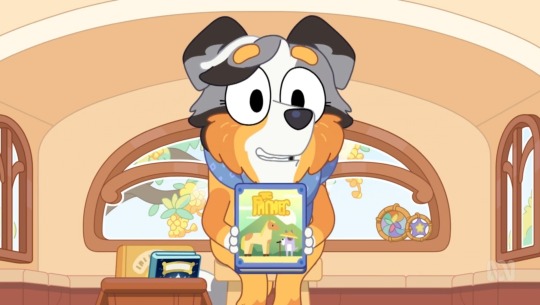
塞翁失馬 [焉/安知非福]
usually, only the first part (塞翁失馬) is uttered in practical use
🇭🇰🇲🇴 coi³ jung¹ sat¹ maa⁵ [jin¹/on¹ zi¹ fei¹ fuk¹]
🀄 ㄙㄞˋ ㄨㄥ ㄕ ㄇㄚˇ [ㄧㄢ/ㄢ ㄓ ㄈㄟ ㄈㄨˊ]
🀄 sài wēng shī mǎ [yān/ān zhī fēi fú]
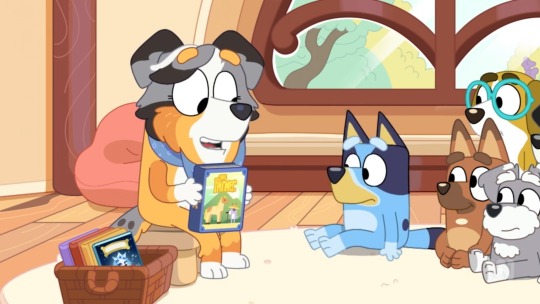
Literal meaning: The old man of the frontier lost his horse (how could he know if this is not fortuitous?)
Meaning: Similar to the sayings, “a blessing in disguise”, “every cloud has a silver lining”.


And there's actually a Wiki entry for this! Quote from Wiki:
“One of the most famous parables from the Huainanzi (淮南子; 'Master of Huainan'), chapter 18 (人間訓; Rénjiānxùn; 'In the World of Man') dating to the 2nd century B.C. The story exemplifies the view of Taoism regarding "fortune" ("good luck") and "misfortune" ("bad luck").
The story is well-known throughout the East Asian cultural sphere and is often invoked to express the idea of "silver lining" or "blessing in disguise" in Chinese, Vietnamese, Korean, and Japanese.”

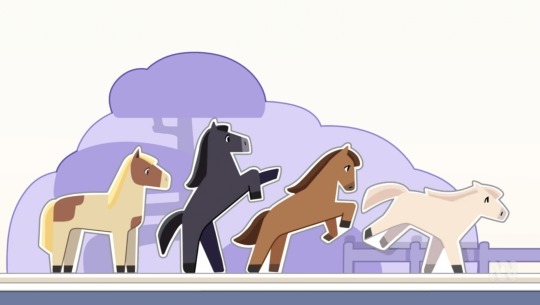







The Chinese language nerd in me was getting increasingly stoked as Calypso read out more and more of the story…I was like, wait a minute…this sounds bloody familiar…and then I had my Aha! 🙀 moment…😸
42 notes
·
View notes
Text

Actually beautiful. I'm tearing up like everything about this was beautiful, brilliant, incredible, amazing, show stopping, spectacular, never the same, totally unique, completely not ever been done before, tearjerking, heartslowing.
M A S T E R P I E C E.
#Yes! Another masterpiece episode from#Bluey#S03E49 The Sign#Bluey Heeler#Bingo Heeler#Chilli Heeler#Bandit Heeler
594 notes
·
View notes
Text

Legit can't believe a show about a blue dog brought me to tears
253 notes
·
View notes
Text
'Patricia Highsmith (1921-1995) was the author largely of books ubiquitously described as psychological thrillers, but the adjective is doing much more work than it usually does in such descriptions. The psychological depths tend to be far deeper than just a worry about being caught for assorted misdeeds. It’s no surprise that her works have proven appealing to all sorts of directors. When your first novel is adapted a year after publication by Alfred Hitchcock, you know you’re doing something right. Strangers on a Train is about much more than just a macabre plan. Wim Wenders’s The American Friend, Claude Chabrol’s The Cry of the Owl, and Todd Haynes’s Carol are all very good.
Tom Ripley is Highsmith’s best-known creation. Turning a Henry James plot into pulp fiction is not the sort of thing that’s usually advisable, but she did it extraordinarily well. The plot of The Ambassadors, an industrialist hiring a man to seek to induce her son to return to America from expat indolence, is cribbed here as a foundation. The James protagonist finds Europe much to his liking, as does Highsmith’s Ripley. When the European idyll is threatened, Ripley has a novel thought: Why not bump the young scion off and take his place?
This sounds like a preposterous plan to execute. And it is! That’s why it’s entirely engrossing. Her aim was, she wrote, “showing the unequivocal triumph of evil over good, and rejoicing in it. I shall make my readers rejoice in it, too.” Netflix‘s new series, Ripley, succeeds in replicating exactly this feat.
The trouble with prior screen adaptations of Highsmith’s Ripley stories has been that he’s always been made far too pleasant. If René Clément’s French language 1960 Purple Noon and Anthony Minghella’s star-studded 1999 The Talented Mr. Ripley are both credible adaptations in their own way, there’s something askew about both matinee idol Alain Delon or effortless everyman Matt Damon as Tom Ripley. Dennis Hopper and John Malkovich both had elements of the Ripley persona down in adaptations of later novels (Barry Pepper did not), but there still seemed to be elements of the portrait missing.
I’m sure I’m not the only reader to find the versatile con man who appears across five Highsmith novels initially repellent. He is not enthusiastic, loathing nearly all of the effort involved in his cons. And he is not loquacious or charismatic as we might expect from a grifter. In almost his very first deception at the start of The Talented Mr. Ripley (the subject of this adaptation), he himself notices the cracks in his crocodile grin: “When he looked into the mirror, he found that his face had turned down at the corners.” Most frauds will say nearly anything to wheedle their way into favor. Talk is normally very cheap when you have no regard for truth. Ripley can’t bring himself to muster more than the mildest of faint praise for execrable paintings by his main mark. Almost every decent person has told white lies with less hesitation.
Things are different in Ripley, the best adaptation of the novel to date, thanks in considerable part to the casting of Andrew Scott (familiar from a variety of things but most germane to this particular role as Moriarty in the BBC Sherlock series) as Ripley. Scott telegraphs unease and strain with great facility. Sometimes, he’s vaguely normally personable. At many other points, his strained effort seems entirely transparent. This sort of calibration captures in excellent fashion the frank distaste that Ripley feels for almost everyone in the source material, a difficult thing to pull off in a book largely composed of his own train of thought. He is terrifically bored by most of his targets and doesn’t work all that hard to conceal the fact. He succeeds somehow with most people. It’s reliably a surprise that only a few see through him.
If the promise of streaming television has been tarnished by countless long-winded series that have no idea how to pace themselves or end, this one makes excellent use of an eight-episode frame to tell the tale of the novel basically in full. Prior adaptations simply couldn’t do that within a feature film length. Purple Noon opens in media res. The Talented Mr. Ripley condenses a number of things. There are some minor emendations, most of which are actively good and almost all at least forgivable.
The book dedicates an enormous amount of time to Ripley’s scheming and improvising. His plans are usually not airtight. Much of the riveting character of the book is how easily he might be caught at almost any moment. A number of sequences whose dramatic tension is contained in their great length are presented in white knuckle effulgence here. Two very lengthy corpse disposals are engrossing. Conversations are lengthy, full of pregnant pauses. There’s even high drama wrought out of multiple bank scenes in which we find Tom feloniously drawing funds.
Steven Zaillian, who wrote the screenplays for Schindler’s List, The Gangs of New York, and The Irishman, provides an excellent script and credible direction. The work of cinematographer Robert Elswit (whose credits include There Will Be Blood) is great. Ripley’s early miserable life in New York is presented well. The tenements are squalid and subways sweltering. La Dolce Vita-era Italy looks all the more rapturous afterward, with shadows and light in various palazzi motivating almost anyone to murder. Locations across south Italy, Capri, and Venice are excellent.
Casting beyond Ripley himself is very strong. Johnny Flynn’s Dickie Greenleaf is a perfect, vaguely dim, but charismatic offspring of privilege. Maurizio Lombardi, perhaps familiar as a cardinal in The Young Pope, is a very strong inspector on the case. Playwright Kenneth Lonergan (who also co-wrote The Gangs of New York) is an ideal Herbert Greenleaf. The casting of Freddie Miles is one substantial deviation, here not the churlish porker of the novel (Philip Seymour Hoffman was about ideal) but rather an androgynous proto-Eurotrash wisp. Dakota Fanning’s Marge Sherwood, Dickie Greenleaf’s tedious paramour, is rendered more truly than any prior. She’s no stunning beauty but a rather average girl in “naive clothes” with “windblown hair and her general air of a Girl Scout.”
Now, Ripley is not exactly a fan of any women if Marge is particularly low on the list. Ripley is very deliberately rendered as sort of gay in the novel. He finds Dickie handsome and Marge repulsive. At a key juncture, he notes he “could have hit Dickie, sprung on him, or kissed him, or thrown him overboard.” This is not the range of options most people consider in a social dilemma, no matter their sexual orientation. Purple Noon basically omitted this element, while The Talented Mr. Ripley camped it up. Ripley replicates the novel’s deliberate ambiguity. He seems devoid of almost any active sexuality and likes almost no one, with exceptions for a handful of men.
What Ripley does like are the finer things in life. He thrills to travel, fine clothing, beautiful objects, and art. These things receive all sorts of close cinematic attention. There is a Hitchcockian cinematic focus on pens, an ashtray, and other talismans of the good life (that also might be used to kill).
Ripley contains a cameo from Malkovich (who portrayed Ripley in another earlier adaptation, Ripley’s Game) as a character from the next novel, and Zaillian optioned all five Ripley novels. Let’s hope that the viewers stream in, as it would be nice to see more of this Ripley.'
#Except for the part about Johnny Flynn being charismatic as Dickie Greenleaf#(sorry don't agree there)#The rest of this review puts into words better than I can#My sentiments (more or less) towards all Ripley screen adaptations so far#And I'm so excited to learn Zaillian did option all five Ripley novels! I hope the rest#Will get greenlit and produced eventually! Fingers crossed!#Ripley Netflix#Ripley 2024#The Talented Mr Ripley#Patricia Highsmith#Books
4 notes
·
View notes
Text
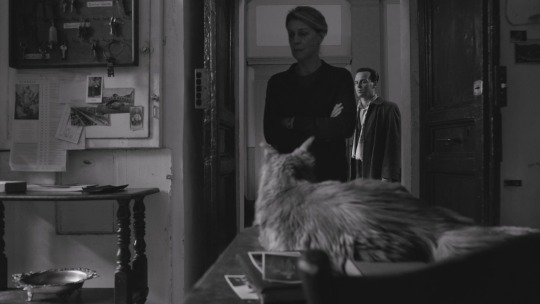
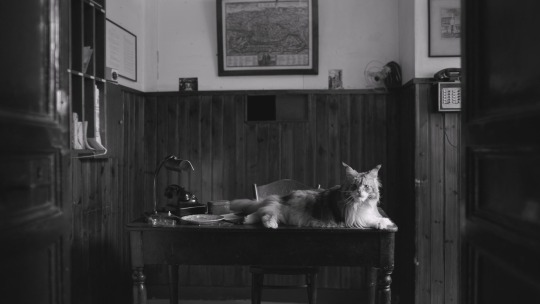
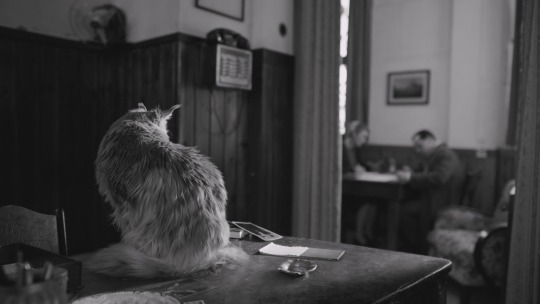
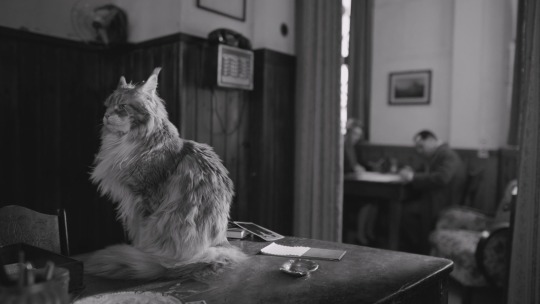
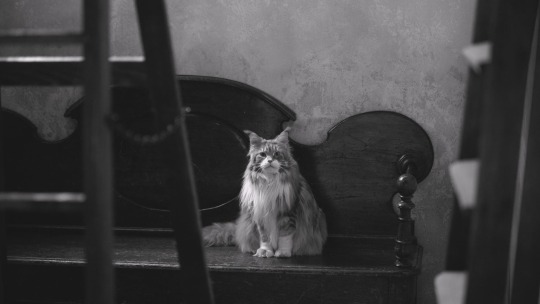


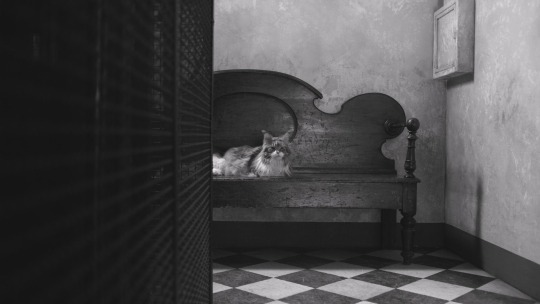

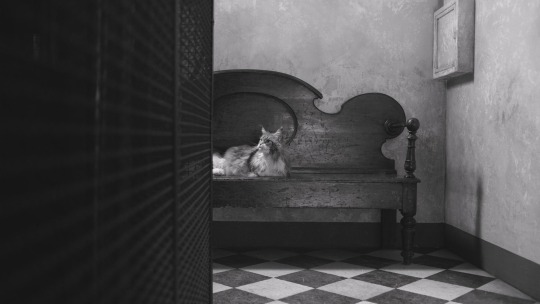


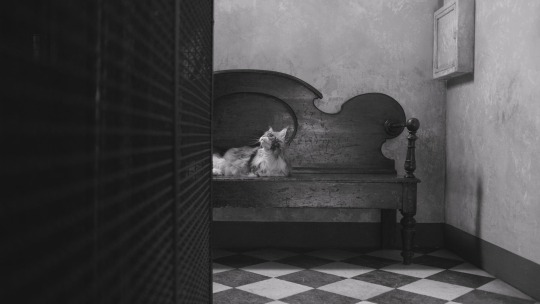
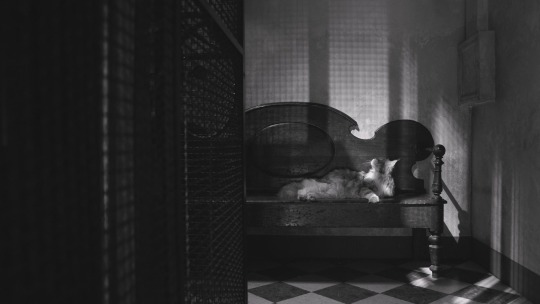

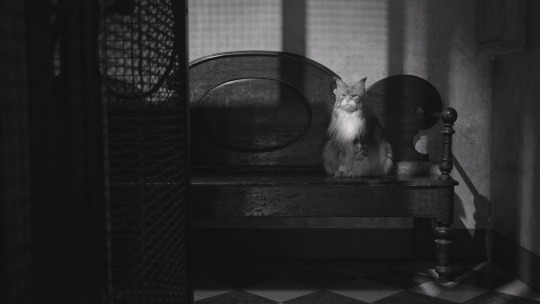

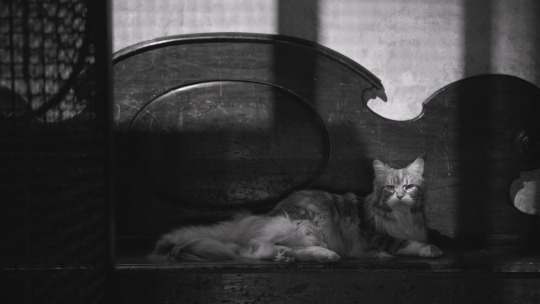
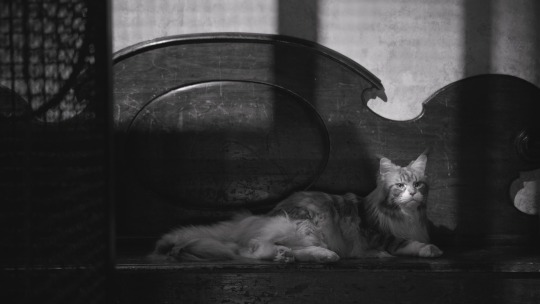



ripley (2024) - V. LUCIO
#Those bloody kitty pawprints! Such a great tension-building device#Ripley Netflix#Ripley 2024#The Talented Mr Ripley#Cats
2 notes
·
View notes
Text
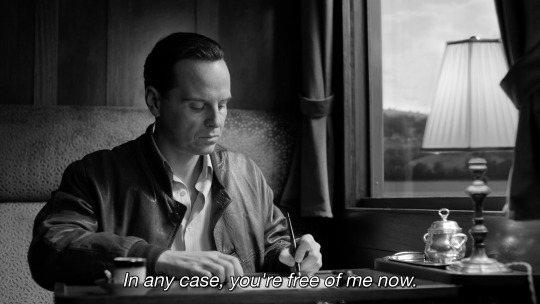
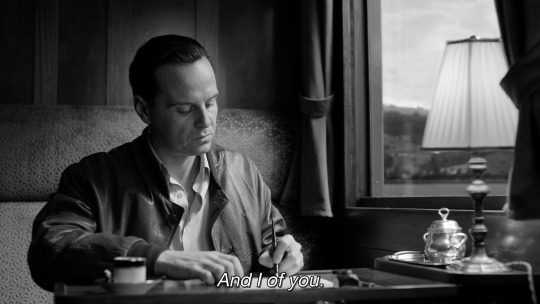
#Words I would certainly love to utter to a certain person in my life!#Ripley 2024#Ripley Netflix#The Talented Mr Ripley#Andrew Scott
8 notes
·
View notes
Text

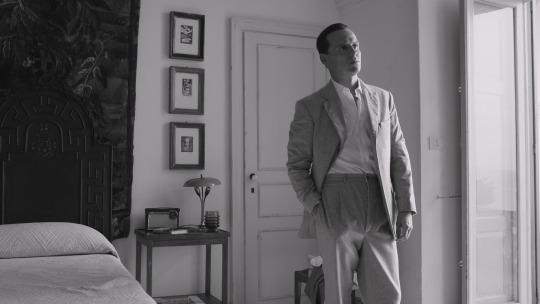


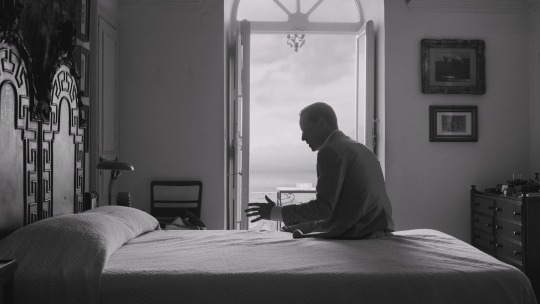
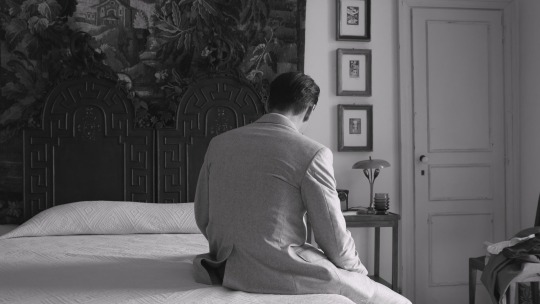

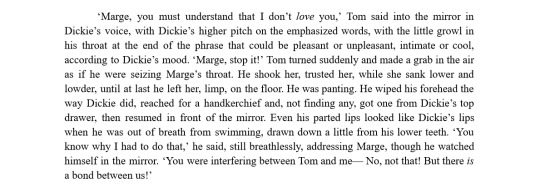

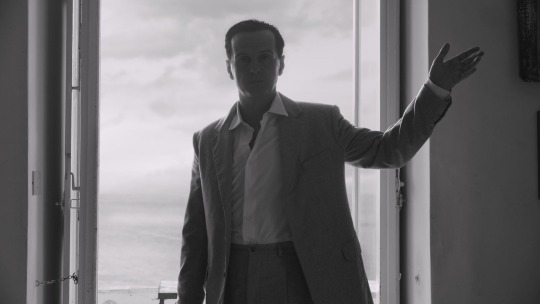

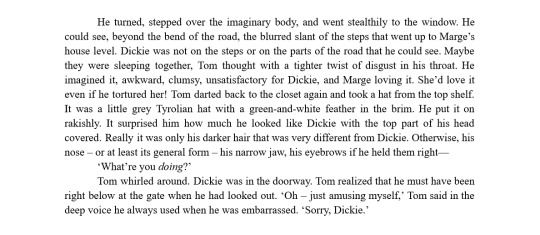
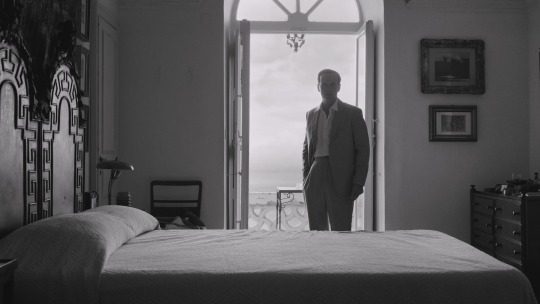



'Another thing I want to say, but clearly,' he said looking at Tom, 'I'm not queer. I don't know if you have the idea that I am or not.'
'Queer?' Tom smiled faintly. 'I never thought you were queer.'
ripley (2024) / the talented mr. ripley - patricia highsmith
#If you love the Ripley book series you'll likely love this adaptation#More than the often compared to 1999 version (which is a little overrated if you ask me!)#Don't get me wrong…I do like the 1999 adaptation too but just saying#It's not the only Ripley film out there#Ripley 2024#Ripley Netflix#Andrew Scott#The Talented Mr Ripley#Patricia Highsmith#Books
56 notes
·
View notes
Text
Sorry to be that person; I was about to say not just the zhī jǐ, the entire sentence sounds so elegant and romantic when uttered in Mandarin (or Cantonese too!) but sorry…my eyes couldn't help being drawn to the mistake in the Chinese subtitles and it sort of ruined the moment…hahaha…
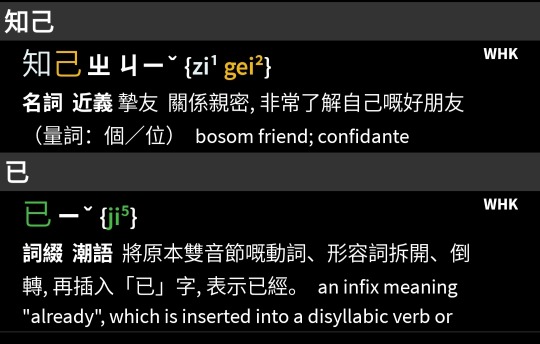
Mandarin Pinyin reading: 知己 (zhī jǐ), 已 (yǐ);
unless you're interested in Cantonese as well, ignore zi¹ gei² & ji⁵, that is Jyutping (Cantonese Romanisation) reading.
「自古寶劍酬知已,願做我的紅塵知已嗎?」
「自古寶劍酬知己,願做我的紅塵知己嗎?」
red=❌, green=✅
For a clearer view of the difference b/n 己 & 已 ↷


Anyway! For anyone wondering how the rest of it goes…↷
Mandarin reading: zì gǔ bǎo jiàn chóu zhī jǐ,yuàn zuò wǒ de hóng chén zhī jǐ ma?
Cantonese reading: zi⁶ gu² bou² gim³ cau⁴ zi¹ gei²,jyun⁶ zou⁶ ngo⁵ dik¹ hung⁴ can⁴ zi¹ gei² maa¹?
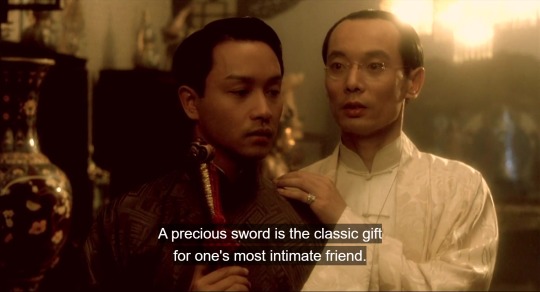

I'm watching "Farewell my concubine" and I think I've recognized the word zhī jǐ, of The Untamed fame (among non-mandarin speakers at least), in this character's speech. Here it is translated as "most intimate friend", which reminds me of the many posts that people have made over the years about CQL subs and how best to translate this word to English. Many of them (rightly) made reference to classic texts, but I didn't see any reference to other contemporary-era translations like this one.
#Chinese Language#Mandarin#Cantonese#Farewell My Concubine#Leslie Cheung#Zhang Fengyi#For convenience putting this too under#HK Movies#Even if it's not solely a HK production#Movies
16 notes
·
View notes
Text
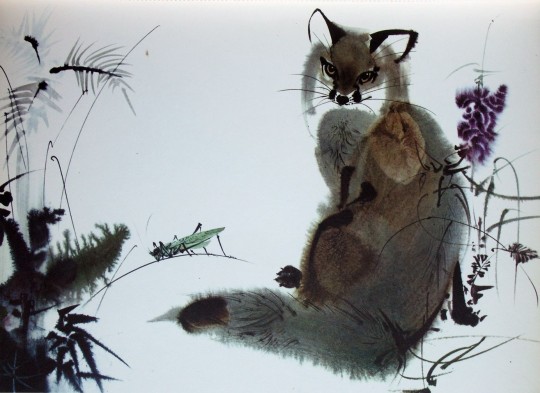
Mirko Hanák (Czech,1921-1971)
1K notes
·
View notes
Text

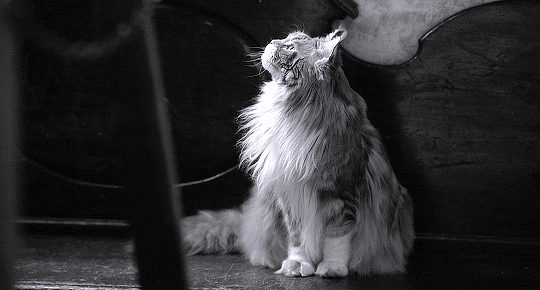

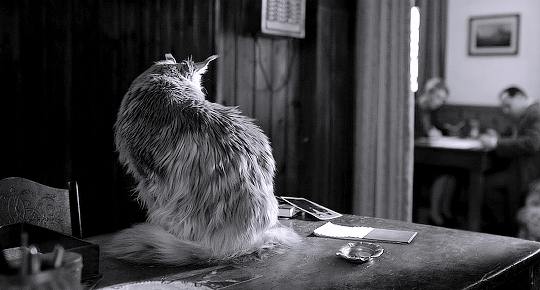

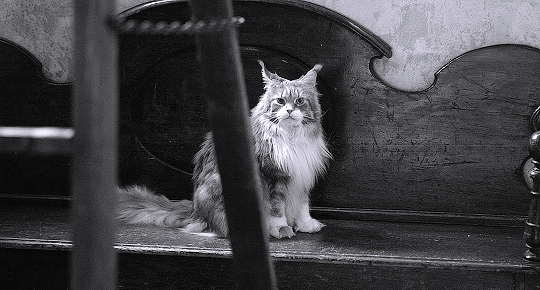

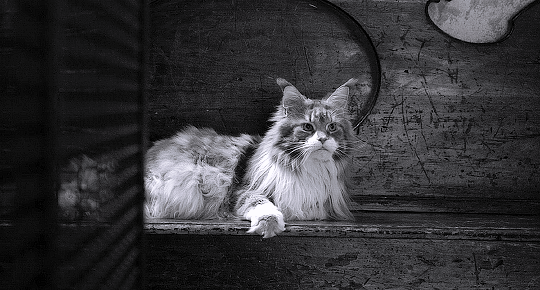
King as "Lucio"
RIPLEY (2024)
202 notes
·
View notes
Text







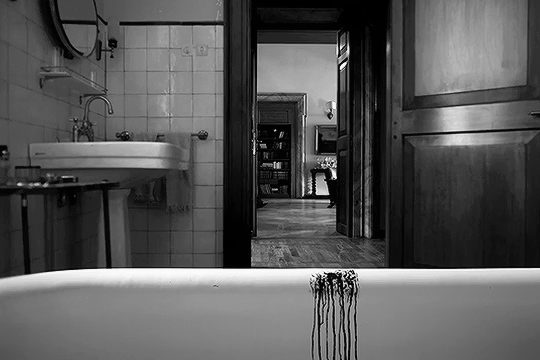

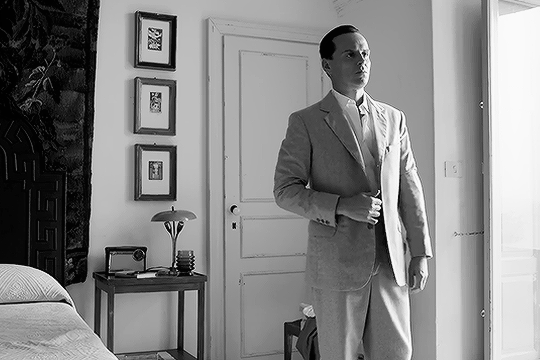
(re)watched in 2024: Ripley
#And will rewatch for as many times as I can!#Ripley 2024#Ripley Netflix#The Talented Mr Ripley#Andrew Scott#Dakota Fanning#Johnny Flynn
136 notes
·
View notes
Text
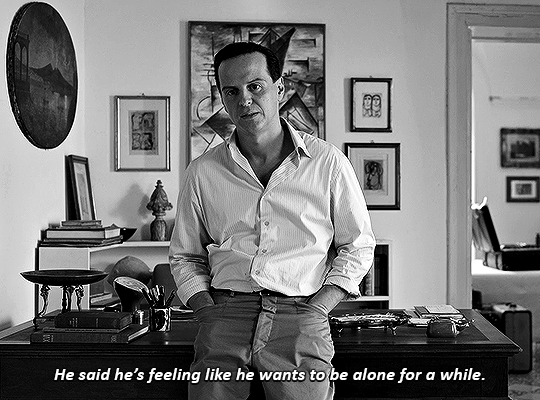
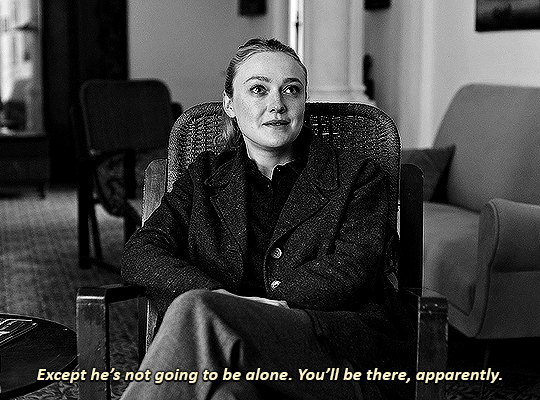

This is kind of awkward, Marge.
RIPLEY (2024)
Episode IV: La Dolce Vita
#Love this Marge way better than the other incarnations thus far!#Which aren't many really…just Gwyneth Paltrow's and Marie Laforêt from Plein Soleil#Still! Appreciate that 2024 Marge was more as the book described#And was in fact the first to sense something amiss with Tom Ripley#Dakota Fanning#Andrew Scott#Ripley 2024#Ripley Netflix#The Talented Mr Ripley
178 notes
·
View notes
Text

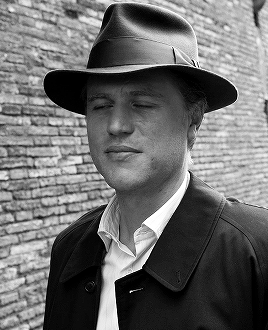


Andrew Scott & Johnny Flynn - RIPLEY (2024) "II SEVEN MERCIES"
#Most convincing “I like girls” ever…not! (heh!)#Ripley 2024#Ripley Netflix#The Talented Mr Ripley#Andrew Scott#Johnny Flynn
433 notes
·
View notes
Photo


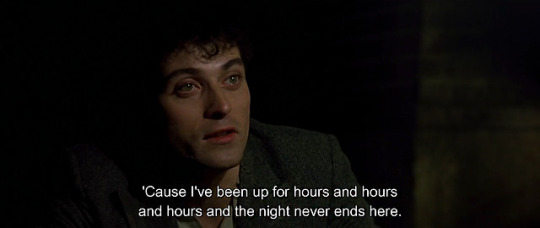
#Rufus Sewell#Dark City#Got reminded of this really underrated film#This along with The Thirteenth Floor trumps the overrated The Matrix to me#Of which both are often compared to#Western Movies#Movies
328 notes
·
View notes
Photo
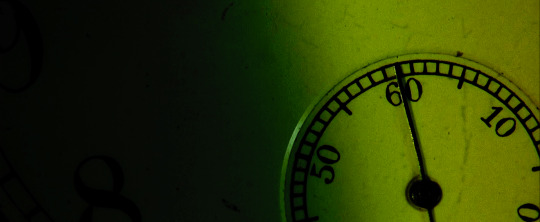



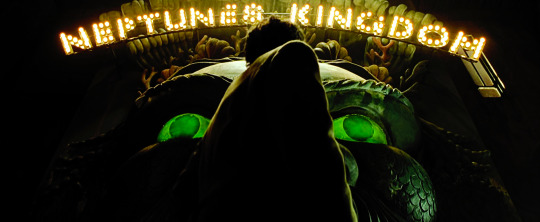
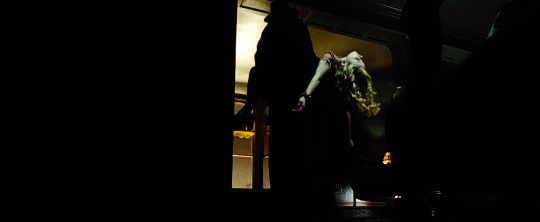

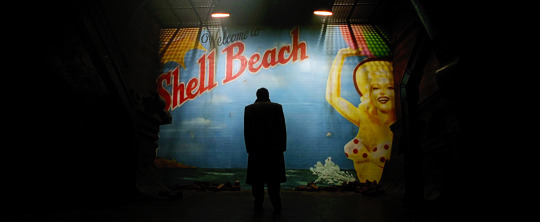
67 notes
·
View notes
Text

Rufus Sewell with Oscar Celebrities photographed with the famous German shepherd Oscar the "Met Bar" dog.
During the late 1990s, Oscar would always be seen out with his owner, Dennis Gill who at the time was selling the "Big Issue", a magazine sold by homeless vendors. Celebrities would buy a copy of the newspaper from Dennis, then they would pose for photographs with the bandana-wearing dog, Oscar..
#Rufus Sewell#Just came off watching him in Scoop (2024)…his performance#Was skin-crawling good! Have always quite liked him as an actor and will always#See him as “Jude Law's ‘evil’ twin” (though he probably won't like that!)…#They looked alike in the late '90s—early 2000s at least! Not so much now#Didn't think much of Scoop (2024) as a whole by the way#German Shepherd#Dogs
16 notes
·
View notes
Audio
Thanks to @shyce-overgod for introducing me to this song! It's a nice song though the lyrics make no sense and I'm convinced (see my replies in this post) it's not Cantonese (nor any other Chinese dialect), contrary to whatever scanty info that can be found on this song, claiming otherwise!
Of course, if anyone can actually make out anything coherent in what's sung…thus proving it's actually an intelligible language, please share what it is! I'll be very glad to know! Thank you!
Clare Fader & The Vaudevillains - Tain Ya Ta Bain Mei Ren Gui.mp3
21 notes
·
View notes